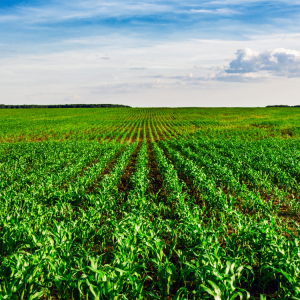CLS: Local Food Sourcing
This widget is displayed if cost is set. In order for the widget in this page to be displayed correctly, please set cost for your last event.How to set cost
Discover the different foods produced locally, which are fresh, high-quality products planted by passionate individuals.
Brad Schwan
Monday, Aug. 12, 10:30 a.m. | Orchestra Hall
“History of the Catawba Island Peach Industry”
Not long after Ohio was a wilderness, Catawba Island became one of the centers of the American peach industry. It’s location, protruding into Lake Erie and the great soils found there, combined to produce peaches that became famous from Ohio to the East Coast. The rise and fall of Catawba peaches, as well as the trials of peach farming, will be discussed by Brad Schwan, who is one of the last remaining growers on Catawba Island. Questions about peaches and peach growing will also be addressed.
Schwan attended Bowling Green State University where he earned his bachelor’s and master’s in education. He taught for 30 years at such school as BGSU, Eastern Arizona College and Arizona State University. Schwan has been a business owner in the Port Clinton area, has owned Schwan Orchards since 2005 and sits on a number of local boards.
Local Food Sourcing
Tuesday, Aug. 13, 10:30 a.m. | Orchestra Hall
“Title TBA”
Kate Jones
Wednesday, Aug. 14, 10:30 a.m. | Orchestra Hall
“Regenerative Farming at The Chef’s Garden”
At The Chef’s Garden, they are always striving to learn and transform the farm to the best it can be. They recently started a journey into regenerative farming because they learned of the healthy benefits for the land and the plants we grow and the people who eat the plants we grow. Join us to learn what regenerative farming is at The Chef’s Garden and how it can assist the earth and you.
Kate Jones is the Organizational Development Manager at The Chef’s Garden, blending a diverse academic background with a passion for fostering growth and excellence in both individuals and organizations. Born and raised in Huron, Kate is a member of the third generation of Joneses at The Chef’s Garden. She studied Communications and Leadership at Indiana Wesleyan University and earned a Master’s degree in Higher Education and in Conflict Resolution and Mediation at Abilene Christian University — a foundation she continues to leverage in her professional endeavors. She is an avid reader, home cook, inadequate but hopeful golfer and passionate coffee connoisseur.
Dr. Theresa Moran
Thursday, Aug. 15, 10:30 a.m. | Orchestra Hall
“Ultra-Processed Food: Are We Now Really Ultra-Processed ‘People?’ With apologies to Dr. Chris Van Tulleken”
According to a 2019 National Institutes of Health study, roughly 60% of the calories in the average American diet come from what are called ultra-processed foods or UPFs.
This presentation will discuss what ultra-processed foods are and why we should care about consuming them. The short-hand way of describing UPFs is food items that are energy, dense, low-cost, and nutrient-poor.
UPFs are linked to negative health outcomes through their impact on so-called lifestyle diseases such as Type 2 diabetes, heart disease, and obesity. I will explore how we got to the place where 60% of our calories comes from UPFs and how we might want to think about UPFs from a food systems and health perspective. A presentation aim is to inquiry whether, as citizens, we believe that we need to know what is in our food. The overall goal is to challenge and empower audiences with knowledge about our food system and food choices.
Thursday, Aug. 15, 10:30 a.m. | Orchestra Hall
“Growing a Regional Food System: A Case Study of Ohio University and Local Producers”
This presentation will discuss how institutional procurement can build resilient regional food systems. The focus will be on Ohio University’s partnership with community organizations and local producers aimed at expanding regional food procurement and about similar work being undertaken at the Ohio State University and at the University of Kentucky. Ohio University is a higher education institution with a student body of over 29,000 situated in Appalachian Ohio. Through staff, faculty, and student engagement and partnerships with local not-for-profits and food producers, OHIO has been attempting to use food procurement to improve its sustainability metrics and grow food production capacity in its region. This procurement expansion also strives to provide campus with fresh, local products to enhance the student experience. In addition, this endeavor helps OHIO realize a fundamental objective of its mission, that is to be a positive catalyst of economic and quality of life change for Appalachia by strengthening regional agriculture.
At Ohio University, Theresa Moran, Ph.D., established the interdisciplinary Food Studies program in 2013, leading the university-wide program until May 2020. Moran’s research focuses on the sustainability implications of food choices with special emphasis on agricultural entrepreneurship and institutional procurement as a driver of regional economic development. Recent publications include documenting seed saving practices in Southeastern Ohio and work on British and Italian foodways with linguist David Bell. Prior to moving to Athens, Ohio, Moran worked at the World Bank in economic development in Venezuela, Brazil, and the Republic of Korea and as a university lecturer in Italy and Japan.
Local Food Sourcing
Friday, Aug. 16, 10:30 a.m. | Orchestra Hall
“Title TBA”
Share This Event

